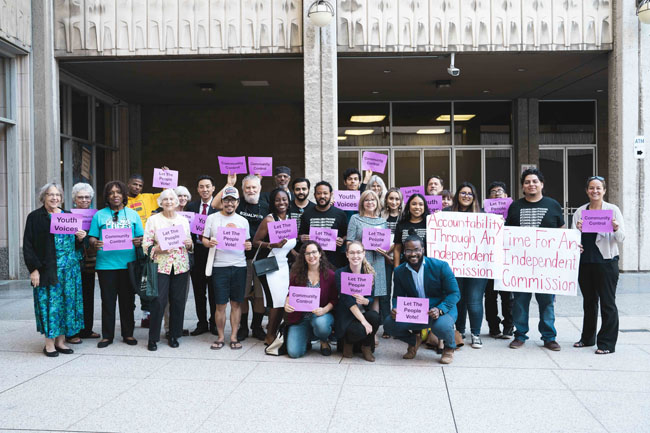

Other items in today’s column include:
Alliance4Israel panel offers suggestions for improving Black-Jewish relations
*Recommended reading

SAN DIEGO — Judging by the names San Diegans for Justice lists as supporters of its call for an Independent Commission on Police Practices, tomorrow’s hearing before the San Diego City Council “to end meet-and-confer with the police union and to pass a resolution of intent to move forward with our proposal” ought to be a slam dunk.
Among supporters are six of the nine members of the San Diego City Council, specifically Council President Georgette Gomez, Barbara Bry, Dr. Jen Campbell, Monica Montgomery, Vivian Moreno, and Chris Ward. Six of the nine members of the City Council are considered a “super-majority,” enough even to override a veto of legislation by the mayor, who also has indicated support for putting the measure on the ballot.
Andrea St. Julian, who is co-chair with Marissa Talbert of the grassroots organization, San Diegans for Justice is not taking any chances. Just in case any council member might have second thoughts, the organization has issued a detailed set of instructions to supporters on how to participate remotely at the 11 a.m. Council meeting.
The instructions are:
“To call in when Item 331 is announced, call 619 541-6301; enter the code 877861#, Wait until you hear: ‘Your phone has been unmuted’ [and] when it’s your turn: Say your name and tell your councilmember to support an Independent Commission on Police Practices with:
“* Independent legal counsel
“*Power to subpoena officers, records, and witnesses
“*Independent investigators and staff.”
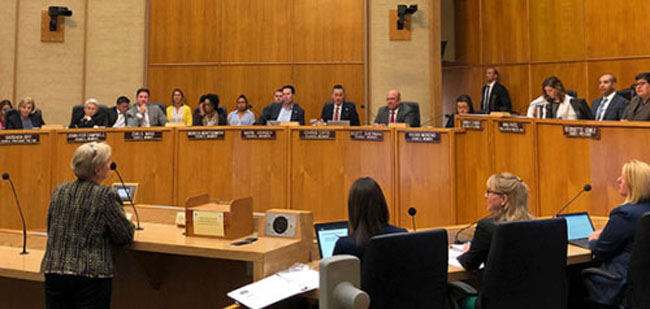
The vote actually is a preliminary one, because the ballot needs to be officially prepared by election authorities before a City Council can procedurally decide to place a measure on it. That is pending, but should occur either by next week or early in July, according to St. Julian.
Although San Diego City Councilmembers Barbara Bry and Jen Campbell are Jewish, I noted on the San Diegans for Justice website that no Jewish organizations are currently included among the supporters. On the other hand, organizations from other communities are prominently listed, among them:American Arab Anti-Discrimination Committee, Council on American Islamic Relations, Mosques Against Trafficking; American Friends Service Committee; First Unitarian Universalist; along with a variety of Democratic clubs, LGBTQ interest groups, and representatives of labor.
“We’d love to have Jewish organizations listed,” St. Julian told me.
San Diegans for Justice was formed as a coalition between the Earl B. Gilliam Bar Association and Women Occupy San Diego, and since has been adding various groups as endorsers.
Learning that the advocacy committee of Temple Emanu-El recently had called on congregants to email councilmembers in favor of the proposal, St. Julian said she plans now to call Temple Emanu-El to seek authorization to list it as a supporter.
Further, she said, she planned to canvass other Jewish organizations such as the Anti-Defamation League to see if it wanted to be added to the list of supporters. Tammy Gillies, the ADL’s regional director in San Diego, said she anticipated having such a discussion with San Diegans for Justice on Tuesday morning.
*
Alliance4Israel panel offers suggestions for improving Black-Jewish relations
The interest expressed by San Diegans for Justice co-founder Andrea St. Julian in possibly forming alliances with segments of San Diego’s Jewish community contrasts with some of the experiences panelists from Alliance4Israel discussed during a panel on Monday concerning how the national Black and Jewish communities can cooperate, notwithstanding some in the amorphous Black Lives Matter movement having incorporated Palestinian-spawned anti-Israel and anti-Semitic rhetoric and propaganda into their charter.
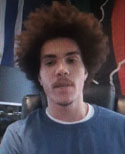
Noah Shufutinsky., whose heritage is both Black and Jewish, is a George Washington University senior majoring in Judaic studies and the recipient of an Elie Wiesel-Martin Luther King scholarship award to study global anti-Semitism at Oxford University in England.
He said Palestinian groups attempt to exacerbate friction between the Jewish and African American communities in a way that disrespects both communities. For example, he said, they have spread the lie that Israeli police teach American members of law enforcement their techniques for subduing and harassing Palestinians to be used against American Black people. He said this is “not only anti-Jewish, it is also anti-Black. We (Black people) have been oppressed long before Jews were reestablished in Israel.”
Shufutinsky said he is a Zionist, and “that should not be a cause for me to be excluded” from the movement for racial justice. However, he said, there is an effort within the Black Lives Matter movement to exclude Jews because of their assumed connection to Zionism. At the same time, he said, there is also a negative trend among Jews to desist from supporting the racial justice campaign because of one element’s anti-Zionism. “We should call out anti-Semitism, and call out bigotry,” he said.
The George Washington University undergraduate said his belief in Jewish liberation is not at odds with his belief in Black liberation. He also urged Jewish-owned and Black-owned businesses to seek each other out for economic relationships in support of each other.
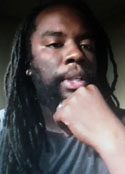
Joshua Washington is the director of the Institute for Black Solidarity with Israel, which was founded by his father, Pastor Dumisani Washington, an active voice in Christians United for Israel (CUFI). Joshua Washington said that he speaks up in the Black community against embracing the propaganda of the Palestinian Liberation Organization (PLO), saying “they oppress their own people.”
Further, he said, “I want to get us to see and resist attempts to hijack our narrative for their own purposes.” Back in the 1960s Civil Rights Movement days, he said, the Student Non-Violent Coordinating Committee (SNCC) was similarly hijacked by the “anti-Jewish leadership.” He urged opportunities for Jewish and Black students to learn together about the eras when the two communities cooperated, such as when Booker T. Washington and Julius Rosenwald collaborated to build schools throughout the nation for Black Americans.” He said some elements of the Black Lives Matter movement are “self-styled Marxists” whose political agenda is more important to them than the aspirations of either Blacks or Jews.

Marta Braiterman Tanenbaum, a teacher who has worked in underserved schools and prisons, and has long been active in Reform Judaism, suggested that Black and Jewish people would do well to follow the metaphoric advice of a rabbi who dismissed his students for the summer urging them to read a good book, take a long walk, and make a friend. If Black and Jewish people read about each other, she said, they would understand that racial justice is a Jewish value. If they walked together, they would engage in personal reflection, look inside themselves, and “move past tired generalities.” As for making new friends, she said, “that speaks to the problem we have of silos of friends based on politics… we can’t understand how other pele see events if we stick to people who think like us. She said the Jewish and Black people don’t break bread together often enough, and simply having one or two friends from the other community is not enough. While she believes the anti-Israel plank ought to be removed from the charter of Black Lives Matter, she pointed out that Israel is not at the center of BLM’s universe, but unless Jews ally with Black people “in their critical moment, why should they listen to us about Israel?”

Stacey Aviva Flint, former policy director for Chicago’s Jewish Council for Urban Affairs, is a woman of dual Jewish and Black heritage. She recalled once attending a program in which African-American students developed empathy for their Jewish counterparts after attending a program at a Holocaust museum. “I would like Jewish kids to go to an African-Ameriacn Museum,” she said.
She said that “Blacks must not drink from the same well of hate as the White supremacists,” adding that if Jews enjoy White Privilege, they should use it to help in such causes as the fight against police brutality.”
Flint told of Rachel Gilmer, a prominent leader in the Black Lives Matter Movement who had been born to Jewish and Black parents, and heard herself called a shvartze. Flint’s own mixed-race childrensuffered teasing of because of their “wild hair.” Feeling like an outsider in the Jewish community, Gilmer grew up to disavow her Jewish roots. “A child rejected by a village will burn it down,” Flint said. The panelist urged the Jewish community to reach out to similarly alienated children of mixed heritage, and to
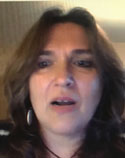
acknowledge that they were not protected. “Our children need to know that they are safe,” she said.
The panel session was moderated by Melissa Landa, the Alliance4Israel founder.
*
Recommended reading
*Andrew Keatts in The Voice of San Diego offers an in-depth look at San Diego mayoral rivals Todd Gloria’s and Barbara Bry’s positioning on local and state legislation to reform police practices.
*Jon Levine of The New York Post reports there may be far fewer Jewish members of Congress after this years elections. Some of the current number are retiring, while others are facing tough election challenges.
*Amy Shapiro of Jewish Insider reviews The Many Lives of Isaac Stern.
*
Donald H. Harrison is editor of San Diego Jewish World. He may be contacted via donald.harrison@sdjewishworld.com